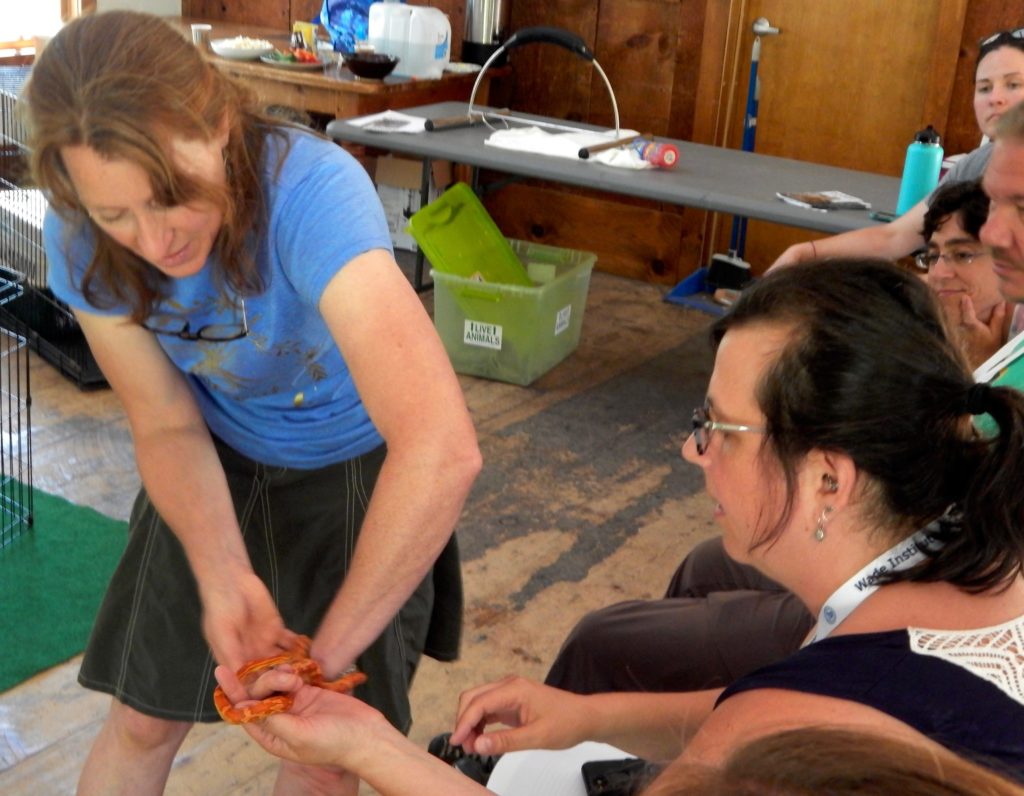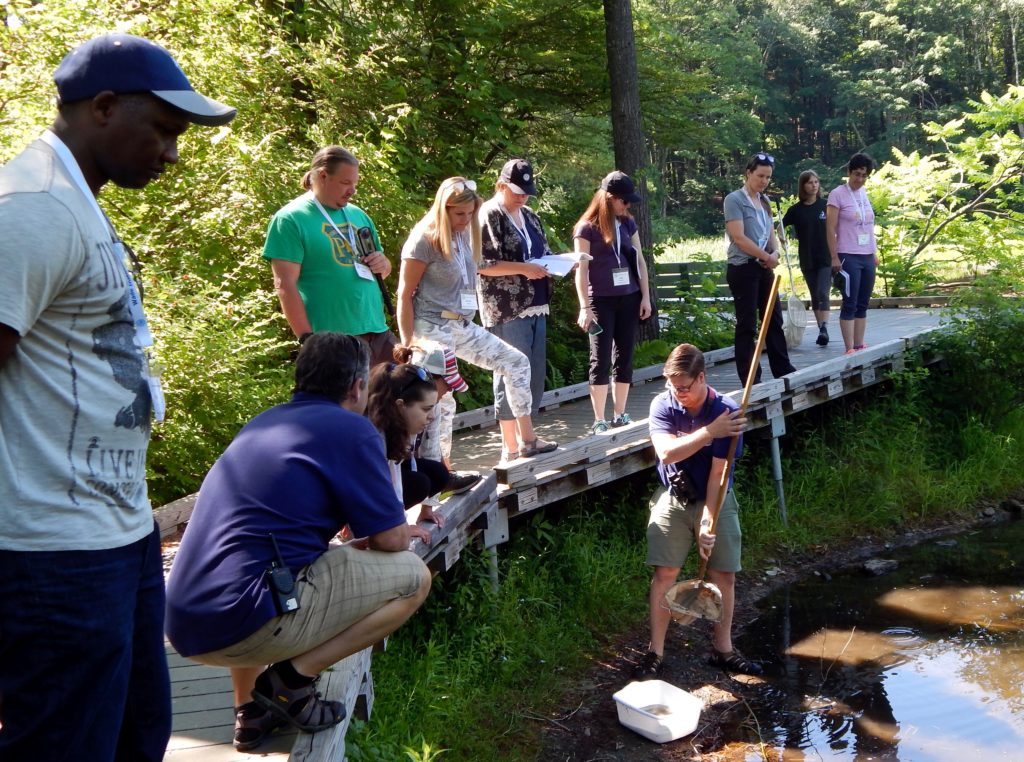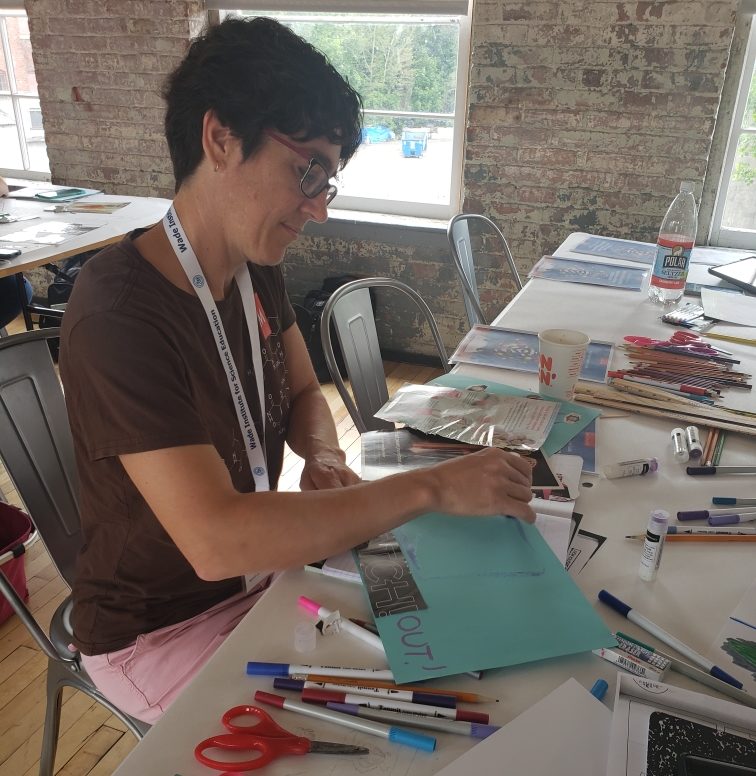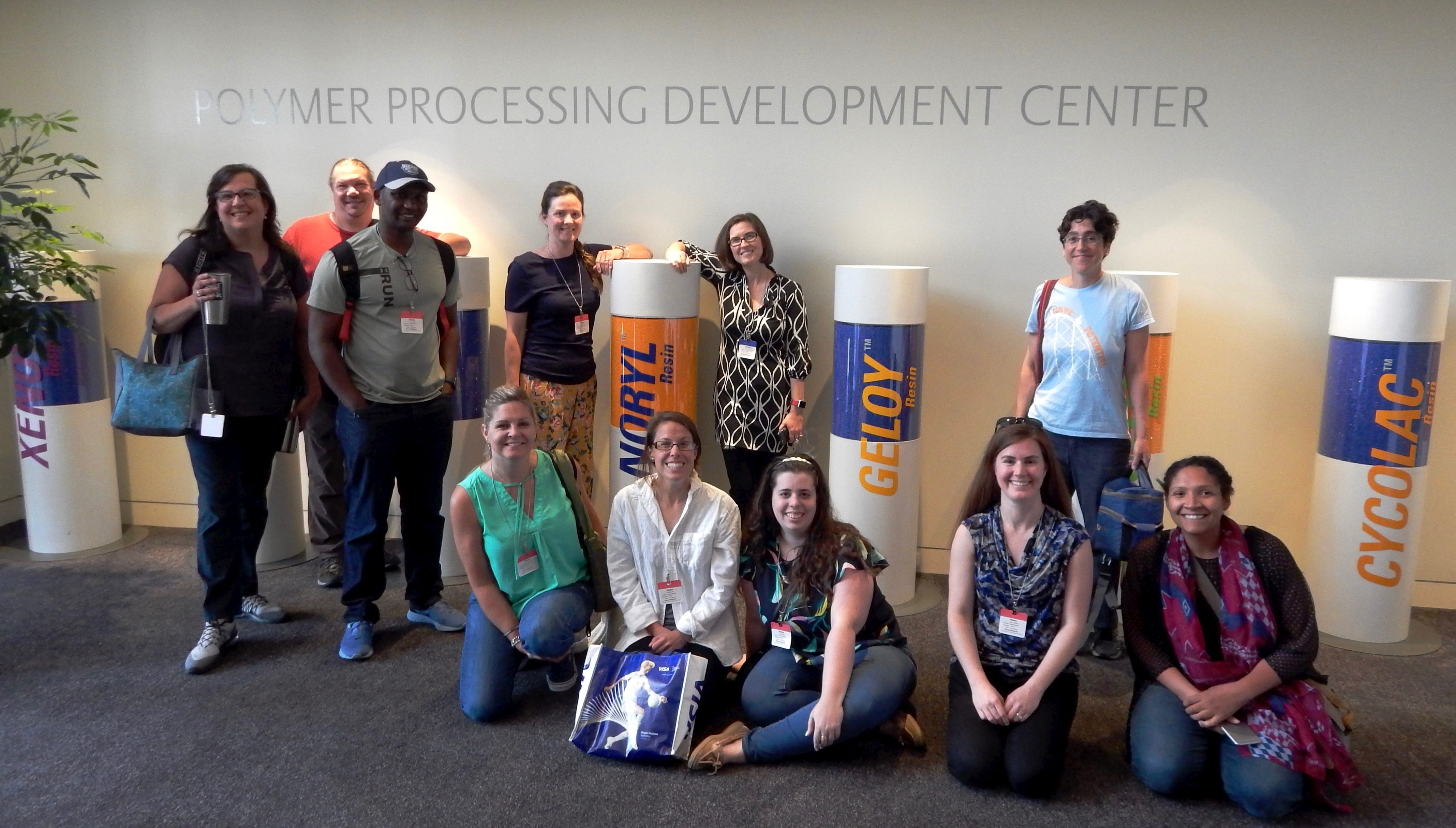Monday, September 9, 2019
For Immediate Release
Berkshire-Area Teachers Explore Biomimicry Innovations
Great Barrington, MA – Why might an engineer want to watch the movements of an animal? How can artists and engineers use their understandings of nature to design innovative exhibits and realistic models? Middle and high school educators answered these questions during the Wade Institute for Science Education’s Summer Professional Development Institute in the Berkshires. From July 8th – 12th, teachers from across the Berkshire region of Massachusetts investigated real-world applications of biomimicry and experienced the importance of modeling as they drew connections between nature, engineering, and art through field trips and hands-on, minds-on activities. The week-long program was coordinated by the Flying Cloud Institute.

During the Institute, teachers explored the use of innovative biomimicry in the engineering design process through inquiry-based activities, presentations from industry experts, field studies to local nonprofits and higher education institutions, and site visits to area manufacturers. Participants learned alongside colleagues as they connected to STEM resources, gained lesson ideas, and discussed effective education methods.
Participants began their week of learning by reviewing the 2016 Massachusetts Science and Technology/Engineering Curriculum Framework with educators from Flying Cloud Institute and Miss Hall’s School. They assessed their current use of the Science and Engineering Practices in their teaching, and conceptualized the transformation of their classrooms into maker space style learning centers. At Mass Audubon’s Pleasant Valley Wildlife Sanctuary, educators focused on learning from nature as a source of solutions to human problems. Nature Matters, Inc engaged participants in studying the movements of wildlife by observing live animals. While pondering how engineers apply their knowledge of animal adaptations to their work in biomimicry and biomimetics, participants engaged in their own collaborative design challenge that addressed energy problems using engineering examples found in nature or inspired by natural phenomena.

Branching out into the community, educators interacted with researchers, engineers, educators and artists at local companies and universities. They took a closer look at the materials used to make models, and searched for similarities in the artistic and engineering design processes. Teachers witnessed the testing, treating, and manipulation of plastics during their visits to research and design laboratories at innovative plastic manufacturer, SABIC. During this field study, participants had an opportunity to partake in a panel discussion about the need for experienced professionals in the field of engineering and how educators can help their students acquire these skills. On-site at the medical model manufacturer, The Chamberlain Group, teachers explored prototyping facilities and learned from the company’s founders about the applications of biomimicry in the design process of anatomically correct human organs for use in medical training and procedural testing. Teachers witnessed the workflow of engineers using biomimicry to develop realistic models, which got them thinking about the art of engineering design. Educators extended their learning by exploring Trenton Doyle Hancock’s Mind of the Mound: Critical Mass exhibit at MassMoCA. They discovered how life sciences can inspire the engineering of art installations and how plastics can be transformed into life-like works of art. Teachers discussed interdisciplinary approaches to learning, as they designed nature-inspired art to convey their own connections to the natural world.

Over the summer, school teachers take a break from their regular classroom teaching to relax, rejuvenate, and steer their own learning. Teachers who participate in the Wade Institute for Science Education’s Summer Professional Development Institutes engage in hands-on, minds-on, inquiry-based learning of science, technology, and engineering topics through collaboratively designed and immersive professional development. Each one-week institute provides educators with pedagogy and content resources and connects them to their regional STEM resources. Educators who attended this institute engaged in engineering design challenges and explored innovative ways to spark their students’ curiosity for STEM. Following their attendance at institutes, teachers use the content and resources presented to design their own inquiry-based lessons to bring real-world problem solving into their classrooms.

The Berkshire Region 2019 Summer Professional Development Institute was held by the Wade Institute for Science Education in partnership with Flying Cloud Institute and in collaboration with MASS MoCA, The Chamberlain Group, Sabic Manufacturing, Miss Hall’s School, Mass Audubon’s Pleasant Valley Wildlife Sanctuary, and Nature Matters, Inc. Learn more at: https://www.wadeinstitutema.org/2019-berkshire-region-summer-professional-development-institute/
###
The Wade Institute for Science Education specializes in providing inquiry-based, hands-on, minds-on, science, technology and engineering professional development for K-12 teachers and informal educators. For more information, visit www.wadeinstitutema.org or call 617-328-1515.
